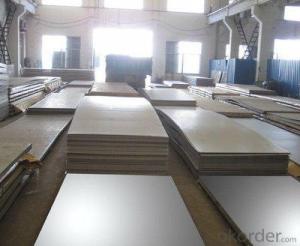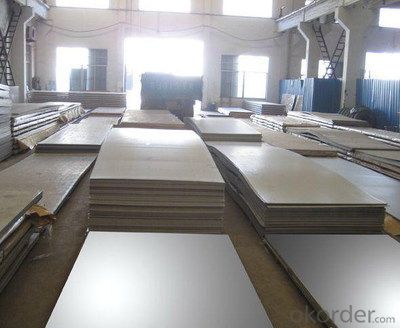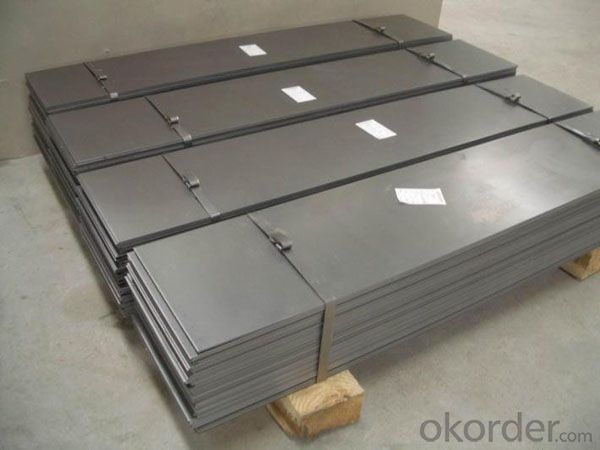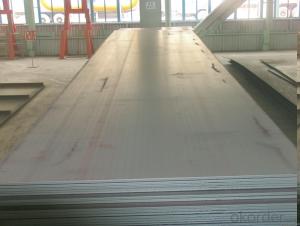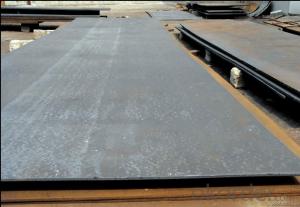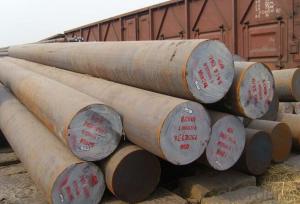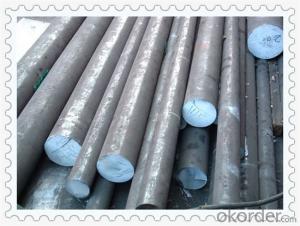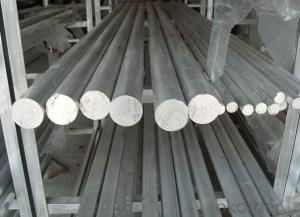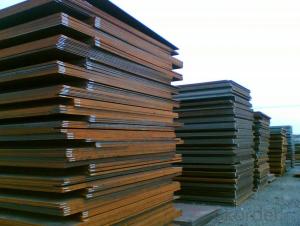Special Steel 30CrMnSi Alloy Steel Plate
- Loading Port:
- China main port
- Payment Terms:
- TT OR LC
- Min Order Qty:
- 30 m.t.
- Supply Capability:
- 10000 m.t./month
OKorder Service Pledge
OKorder Financial Service
You Might Also Like
Specification
Special Steel 30CrMnSi Alloy Steel Plate
Product Information:
1)Grade : 30CrMnSi
2) Thickness : 2mm-600mm
3) Width : 1500mm-2400mm
4) Length : 4000mm-11000mm
5) MOQ : 10MT
6) Origin : China
Product Overviews:
| Product Name | Typical Grades | Diameter(mm) | Standard adopted |
| Carbon Steel | 20 (1020/S20C/C22) | Ø16-Ø300 | GB/SAE/JIS/DIN |
| 40 (1040/S40C/C40) | |||
| 45 (1045/S45C/C45) | |||
| Bearing Steel | GCr9 (51100/SUJ1) | Ø12-Ø250 | |
| GCr15 (52100/SUJ2/100Gr6) | |||
| GCr9SiMn (A485-Gr.1/SUJ3) | |||
| Cr-Mo Steel | 20Cr (5120/SCr420H/20Cr4) | Ø12-Ø250 | |
| 40Cr (5140/SCr440/41Cr4) | |||
| 42CrMo(4140/SCM440/42CrMo4) | |||
| Gear Steel | 20CrNiMo | Ø16-Ø600 | |
| 20CrMn(5115/SMnC420/20MnCr5) | |||
| 20CrNiMo(8620/SNCM220/20CrMiMo2) |
Product Show:

Our Advantages:
· Industry experience over 20 years.
· Shipment of goods -More than 70 countries worldwide.
· The most convenient transport and prompt delivery.
· Competitive price with best service.
· High technical production line with top quality products.
· High reputation based on best quality products.
With our experienced, enthusiastic and dynamic staffs, we assure to bring you the products with best quality, reasonable prices and good after-sales services under the motto: Friends First, Business After.
Communication, Experience, Expertise and Best efforts are our Promises to you.
- Q: How does special steel contribute to reducing product costs while maintaining quality?
- Special steel contributes to reducing product costs while maintaining quality through several ways. Firstly, special steel possesses enhanced strength and durability, allowing manufacturers to produce products with thinner gauges or smaller dimensions, reducing material usage and overall costs. Additionally, its superior corrosion resistance and longevity ensure that the products have a longer lifespan, reducing the need for frequent replacements. Moreover, special steel's exceptional machinability enables efficient production processes, reducing labor costs and increasing productivity. Lastly, its high precision and consistency in manufacturing contribute to minimizing defects and waste, resulting in cost savings and improved product quality. Overall, special steel's unique properties and characteristics enable manufacturers to optimize production, thereby reducing costs without compromising on product quality.
- Q: How does special steel enhance the durability of products?
- Special steel enhances the durability of products by providing them with superior strength, hardness, and resistance to corrosion and wear. Its unique composition and manufacturing processes result in a material that can withstand high pressure, extreme temperatures, and harsh environments, making it ideal for applications where regular steel would fail. This enhanced durability ultimately leads to longer product lifespans, increased reliability, and reduced maintenance costs.
- Q: How does special steel contribute to reducing product waste?
- Special steel contributes to reducing product waste by offering superior strength, durability, and corrosion resistance. This allows manufacturers to produce longer-lasting and more reliable products, minimizing the need for frequent replacements. Additionally, special steel's high precision and customization capabilities enable the creation of components with tight tolerances, reducing the risk of assembly errors and subsequent product failures. Consequently, special steel helps optimize product performance and longevity, thereby reducing waste generated from premature product disposal.
- Q: How does special steel perform in surface hardening applications?
- Special steel is renowned for its exceptional performance in surface hardening applications, as it possesses certain desirable properties such as high strength, toughness, and resistance to corrosion and heat. Unlike regular steel, special steel exhibits superior characteristics when it comes to surface hardening. This is due to the presence of alloying elements like chromium, molybdenum, and vanadium, which enhance its hardenability and allow for effective heat treatment processes such as carburizing, nitriding, or induction hardening. These processes alter the microstructure of the steel surface, resulting in increased hardness and wear resistance. What sets special steel apart is its ability to be hardened to a greater depth compared to regular steel. This quality makes it an ideal choice for surface hardening applications, as the hardened layer provides protection against abrasion, erosion, and fatigue, significantly prolonging the lifespan of the component. Moreover, the improved wear resistance and hardness of special steel make it suitable for industries such as automotive, aerospace, and manufacturing, where components are subjected to extreme conditions and high levels of stress. Furthermore, even after surface hardening, special steel retains its exceptional mechanical properties, ensuring durability and the ability to withstand heavy loads and impacts without failure. This combination of hardness and toughness is crucial for applications where both wear resistance and structural integrity are vital. In conclusion, special steel is highly effective in surface hardening applications due to its superior hardenability, wear resistance, and mechanical properties. Its ability to endure extreme conditions while maintaining durability makes it the preferred choice for industries that require components with enhanced surface hardness and longevity.
- Q: What are the different heat treatment processes used in special steel production?
- Some of the different heat treatment processes used in special steel production include annealing, tempering, quenching, normalizing, and hardening.
- Q: What are the properties of magnetic alloy steel?
- Magnetic alloy steel possesses a combination of magnetic and mechanical properties that make it suitable for various applications. It exhibits high magnetic permeability, allowing it to attract and retain magnetic fields efficiently. Additionally, it boasts excellent strength, hardness, and wear resistance, making it ideal for manufacturing components in electrical transformers, motors, generators, and magnetic cores. Its properties can be further enhanced through heat treatment processes, ensuring optimal performance in magnetic applications.
- Q: How does special steel contribute to the formability of products?
- Special steel contributes to the formability of products by providing enhanced mechanical properties, such as higher strength, toughness, and ductility. These properties allow the steel to be shaped and formed into complex geometries without cracking or deforming. Additionally, special steel alloys may have improved resistance to corrosion, wear, and heat, enabling the production of durable and long-lasting products.
- Q: How does special steel contribute to the defense sector?
- The defense sector relies heavily on special steel, which offers numerous benefits and applications that bolster national security. First and foremost, special steel is renowned for its exceptional strength, durability, and resistance to wear and corrosion. These attributes make it an ideal material for manufacturing military equipment and weapons. Tanks, armored vehicles, naval ships, and aircraft carriers all benefit from the structural integrity and protection against enemy attacks provided by special steel. Furthermore, the use of special steel in ballistic armor and bulletproof vests enhances the safety of soldiers on the battlefield. Additionally, special steel alloys possess remarkable thermal resistance and high-temperature capabilities, making them suitable for producing jet engines, turbines, and rocket components. These materials can withstand extreme conditions, enabling faster and more efficient military aircraft, missiles, and vehicles used in space exploration. Moreover, special steel's electromagnetic properties make it invaluable in the defense sector. It is employed in developing radar systems, communication devices, and electronic warfare equipment. Special steel alloys effectively shield against electromagnetic interference, ensuring secure and reliable communication during critical defense operations. Furthermore, special steel plays a vital role in the production of precision tools and machinery used in the defense sector. With its high machinability, special steel enables the fabrication of complex components with tight tolerances. Military-grade cutting tools, drills, and machine parts are manufactured using special steel, thereby enhancing the efficiency and effectiveness of military operations. In conclusion, special steel significantly contributes to the defense sector by providing crucial properties such as strength, durability, resistance, and more. Its applications in military equipment, weaponry, armored vehicles, aircraft, and electronic systems not only enhance national security but also protect soldiers and enable advanced defense capabilities.
- Q: What are the different methods for joining special steel?
- There are several methods for joining special steel, including welding, brazing, soldering, and mechanical fastening. Welding involves melting the steel pieces together using heat and filling the gap with a molten filler material. Brazing uses a lower melting point filler material to join the steel pieces together. Soldering is a similar process to brazing but uses an even lower melting point filler material. Mechanical fastening includes methods such as bolting, riveting, or using adhesives to hold the steel pieces together.
- Q: How does the heat treatment process affect special steel?
- The heat treatment process can significantly impact the properties of special steel. It involves heating the steel to a specific temperature and then cooling it in different ways to achieve desired hardness, strength, and other mechanical properties. By carefully controlling the heating and cooling rates, the heat treatment process can alter the microstructure of the steel, allowing for the formation of various phases and structures. This can result in improved hardness, toughness, and wear resistance, making the special steel more suitable for specific applications. Additionally, heat treatment can also relieve internal stresses and improve dimensional stability, enhancing the overall performance and durability of the special steel.
Send your message to us
Special Steel 30CrMnSi Alloy Steel Plate
- Loading Port:
- China main port
- Payment Terms:
- TT OR LC
- Min Order Qty:
- 30 m.t.
- Supply Capability:
- 10000 m.t./month
OKorder Service Pledge
OKorder Financial Service
Similar products
Hot products
Hot Searches
Related keywords
